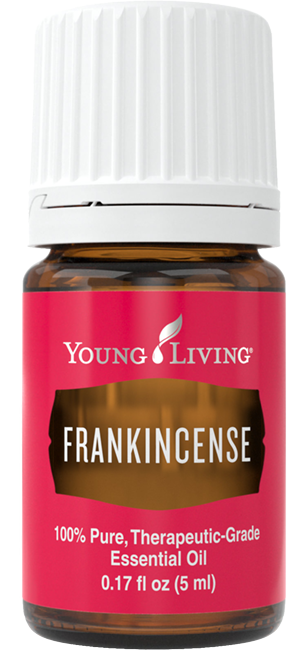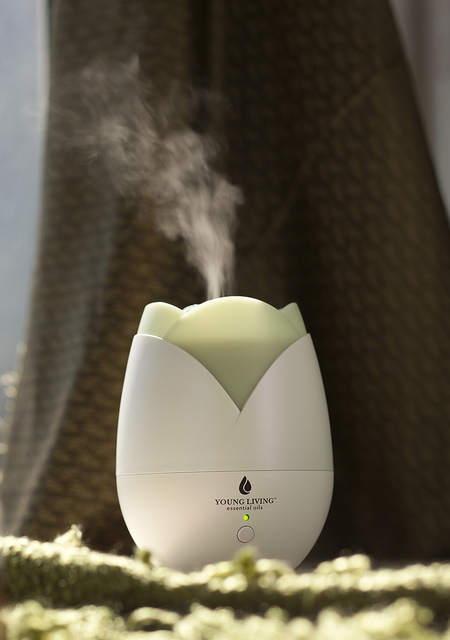This is the second post in my series on essential oils and brain fitness. To see other posts in the series, click here.
We all want our brains to work at peak capacity. We want to be able to remember what we learn in school. We want to stay mentally sharp as we age. We want to be able to understand ourselves, other people and the world around us. We want our brains to be able to function under stress.
Although these are the things we want for our brain, we usually neglect the very thing that makes all of this possible.
The foundation to all brain fitness is having a peaceful brain.
In this post I will explain why mental peace is foundational for a healthy brain and how you can use essential oils in your journey towards mental peace. I will also be offering specific step-by-step activities you can do to increase the peace of your brain. (Since the techniques in this post involve interactive activities, I recommend you first print this post.)
Why A Peaceful Brain is Foundational
Imagine a farmer who goes to sow seed in a field that is hard as rock. He has all the right seeds, all the right fertilizer and the perfect irrigation equipment. But all of these supplies are useless if the ground hasn’t been adequately prepared. The farmer will only be wasting his time if he tries to plant before tilling the soil.
It’s the same with the brain. Trying to bring brain-fitness to someone who is not at peace is like trying to sow seed in a rock-solid field. Everything I have to teach you in this series of posts will be of little use if your brain is not at a place of peace.
I’m not making this up. Scientists working at the Heart Math Institute have found that when a person’s mind is at peace, this helps their heart-rate to enter a condition known as “coherence.” This state is associated with clearer thinking, higher levels of resilience, and an increased ability to absorb and recall new information. What all this research points to is the fact that developing mental peace is to the brain like tilling is to the soil: it breaks up the rigidity and closed mindedness that stand in the way of embracing new ideas, reaching new horizons and remembering new concepts.
That doesn’t mean that your brain has to get to a place of total peace right away. Everything worthwhile in life takes a long time to develop, and mental peace is no exception. Given the stressful nature of the world in which we live, it is important to be realistic about how difficult it is to develop a peaceful brain. That is why the activities I will be sharing with you aim to help you achieve a state of peace for just five minutes. Even five minutes of peace will help create the conditions your brain needs to function properly for the rest of the protocols I will be sharing in this series of posts.
But I’m getting ahead of myself. I want to talk about one specific essential oil that plays an important function in brain fitness.
 Frankincense Oil
Frankincense Oil
If you have ordered Young Living’s Premium Starter Kit you should have a bottle of Frankincense oil, along with a diffuser.
Frankincense is one of the most ancient of all the oils. With its complex, musty, esoteric aroma, Frankincense played a key part in spiritual traditions throughout the world stretching back thousands of years. In the book of Leviticus we read how God commanded Moses to use Frankincense as one of the ingredients of the incense recipe used in Jewish temple worship.
In the ancient world, only the wealthiest people could afford Frankincense oil. Thanks to the modern process of stream distillation, this ancient oil is now accessible to everyone, not merely kings, queens and priests. As Frankincense has become more available, research on its health benefits have exploded. One of the things scientists are discovering is that Frankincense is high in sesquiterpenes, which stimulate the hypothalamus, pineal and pituitary glands, as well as the brain’s limbic system. The limbic system is the part of the brain that is the center of memory and emotions. In lay-person’s terms, we could call Frankincense “brain fitness in a bottle.”
Smell, Breathe and Be Mindful
 Put 4 or 5 drops of Frankincense into your diffuser and begin diffusing. Find somewhere comfortable to sit where the aroma can reach you, preferably on the floor or grass. If you are elderly and find sitting on the floor difficult, then a chair is permissible.
Put 4 or 5 drops of Frankincense into your diffuser and begin diffusing. Find somewhere comfortable to sit where the aroma can reach you, preferably on the floor or grass. If you are elderly and find sitting on the floor difficult, then a chair is permissible.
Let all of your senses be engaged with the Frankincense. Breath in and out deeply, taking deep breaths of the Frankincense mist emanating from the diffuser. Give the Frankincense your full attention: the feel of it, the smell of it, the sound of your nose as you gently inhale the Frankincense air. Don’t let your brain analyze what you are doing; just experience it. Do this for about a minute before continuing on with this article.
Now I want you to take that same loving attention that you gave the Frankincense, but focus it on your breath. Let the aroma recede into the background of your mind and bring your attention to your breathing. Breathe in and out deeply, trying not to think about anything other than the breathing itself. As you do this your brain will probably be pulled in all directions. These types of mental distractions are normal. Be mindful to view these distractions as being separate from yourself and just gently bring your focus back to the present moment of your breathing.
Do this for five minutes before reading the next section.
Embracing Stillness
How do you feel? Was it hard to sit still for five minutes and do nothing but breathe? For most people starting off, this type of “mindfulness meditation” is incredibly difficult. That’s okay because this type of meditative exercise takes lots of practice. In time you will be able to increase your time to ten minutes.
When I first started doing this type of mindful breathing I found it slightly unnerving, even frightening. Like most people growing up in the modern world, I tended to live each day with my brain in fight-or-flight mode. Moreover, I tended to cover over my anxieties, fears and insecurities through a life of constant noise and distractions. Learning to live in a place of stillness—even just five minutes of stillness—can be scary at first, because all our props and survival mechanisms are suddenly removed.
Slowing down to embrace the stillness means we have to come face to face with ourselves, and perhaps even with emotions that have been buried in all the noise of our life. Because of this, some people who slow down for five minutes to engage in mindful breathing find themselves breaking out into uncontrollable tears. Other people find themselves experiencing a strange sort of elation. Still others find this type of meditation a real struggle and they are relieved when it finally ends. Whatever you experience, be assured it’s okay. Don’t over-analyze what is going on, just experience it.
Because I recognize that many people find it unnerving to sit in stillness for five minutes, I have intentionally paired this type of meditative exercise with the reassuring musty aroma of Frankincense. The exotic other-worldly aroma of Frankincense can be powerful in lifting you above your fears, opening you up to the beauty of stillness. (If Frankincense isn’t a good fit for you, then try meditating while you diffuse some of the other oils in the Starter Kit, such as Lavender or Stress-Away.)
The Five Most Important Moments of Your Life
The literature dealing with the cognitive benefits of mindful breathing is huge. (See the footnotes in my article ‘The Power of Positive Breathing.’) Similarly, the literature on the cognitive benefits of aroma is also huge. (See the literature review in Rachel Herz essay “Influence of Odors on Mood and Affective Cognition” in Olfaction, Taste, and Cognition‘ or the research I shared in my earlier post ‘The Power of Positive Smelling.’)
By combining these two activities into one—as I had you do a minute ago—you stand to receive twice the benefit! Indeed, every time you engage in mindful, meditative breathing in the presence of essential oil mist, you rewire your brain to become smarter and more intelligent.
I’m not making this up. Research on these types of meditative practices have shown that even four brief sessions reduces fatigue and anxiety while enhancing the ability to sustain attention. What this research is showing is that just five minutes a day of mindful, meditative breathing can literally make a difference to whether a person’s brain exists in a place of peace or chaos. The research also shows that this type of meditation is associated with greater levels of attentiveness, self-regulation, emotional resilience, self-compassion, empathy and compassion towards others, improved social skills, increased cortical thickness, enhancement of spiritual values, improved immune function, reduction of pain, and, according to one study, “changes in gray matter concentration in brain regions involved in learning and memory processes, emotion regulation, self-referential processing, and perspective taking.”
Terms like “cortical thickness” and “changes in gray matter” are how scientists refer to getting smarter. That’s right. Mindful breathing makes a person smarter. From a brain-fitness perspective, the five minutes you just spend meditating could be the most important five minutes of your entire life.
You may not notice any difference at first, but if you do this faithfully every day, your mind will be more at peace, which is the foundation for all brain-fitness. You may begin to find that the five minutes you spend each day meditating in the presence of your diffuser could turn out to be the five most important moments of your entire life.
Further Reading
- Essential Oils and Brain Fitness (Part 1): My Aromatic Journey to Brain Fitness
- Essential Oils and Brain Fitness (Part 2): How to Develop a Peaceful Brain
- Essential Oils and Brain Fitness (Part 3): Developing a Youthful Brain
- How to Buy High Quality Essential Oils at Wholesale Prices
- The Power of Positive Breathing
- The Power of Positive Smelling
- Entire Series on Essential Oils and Brain Fitness

